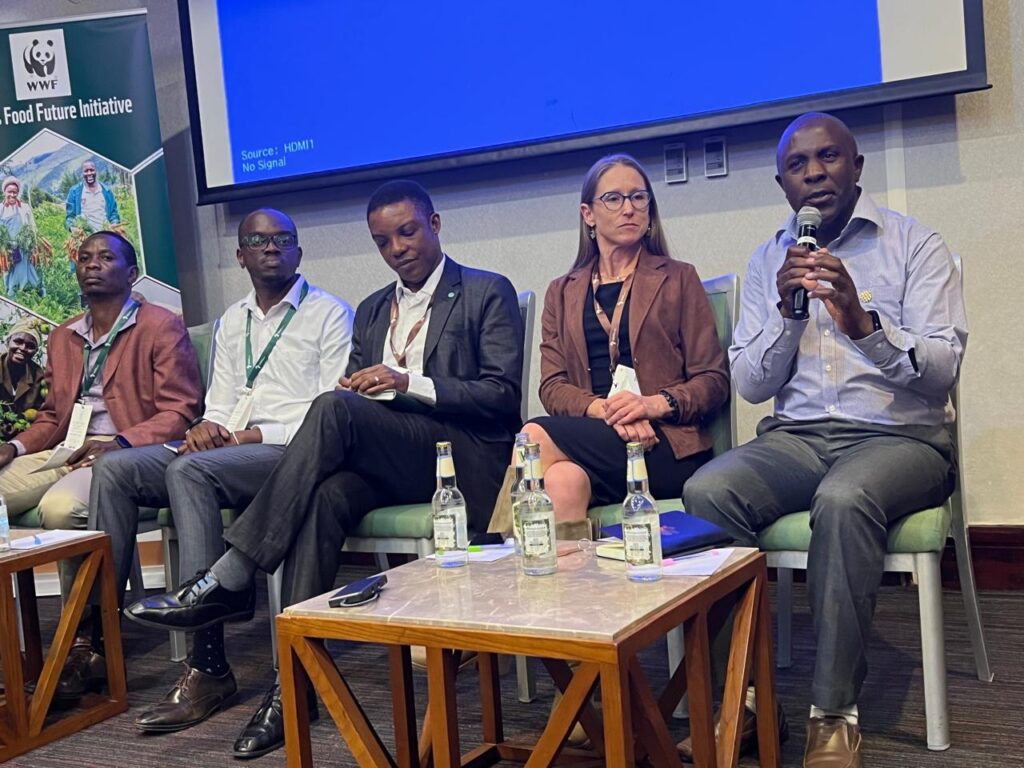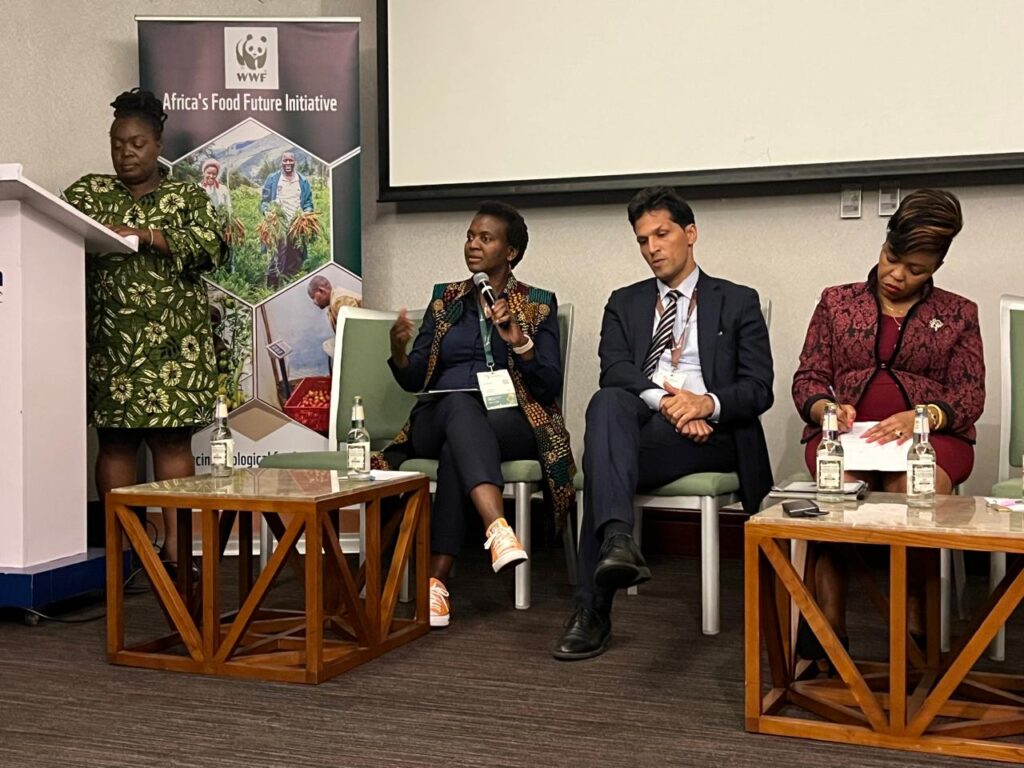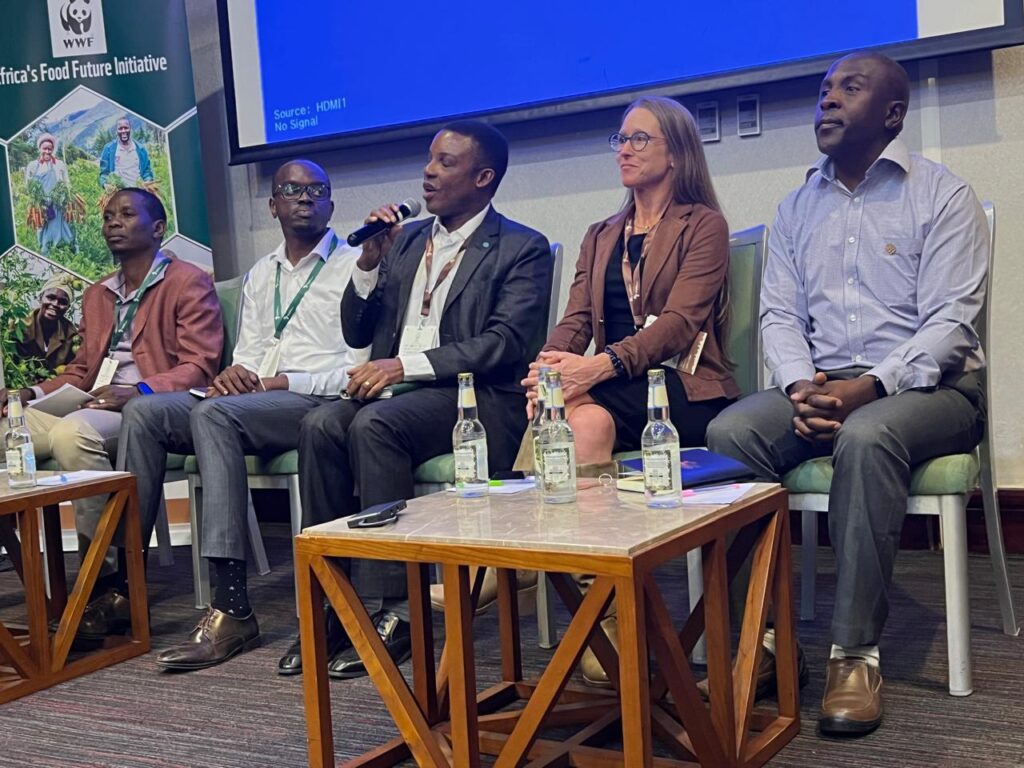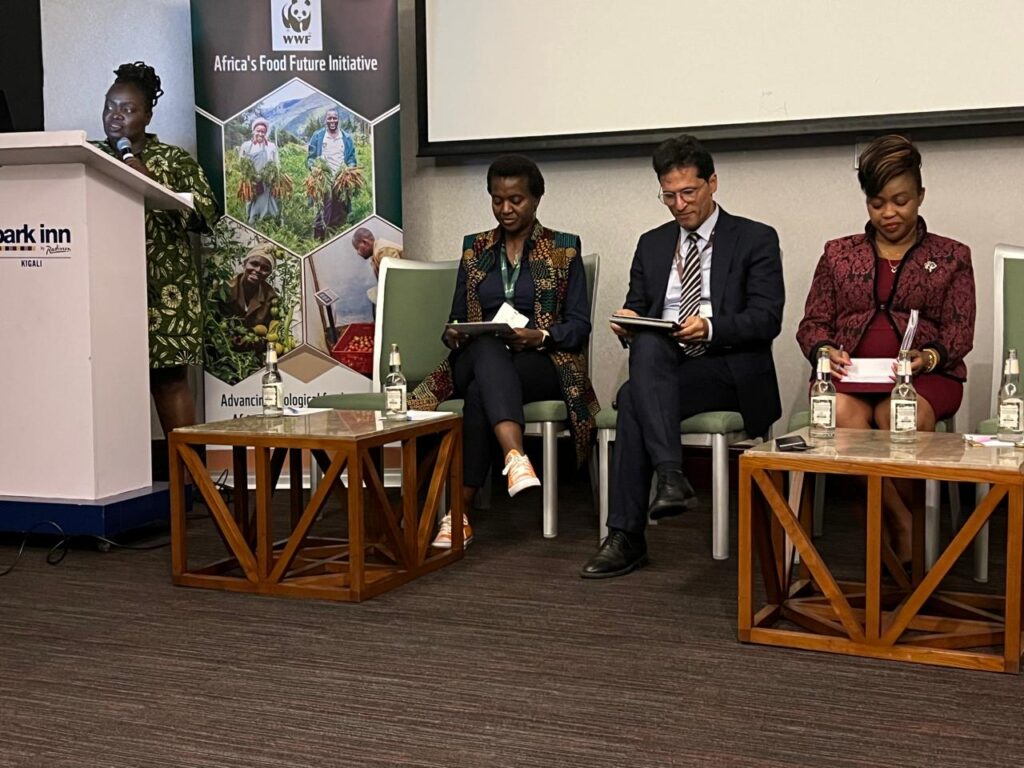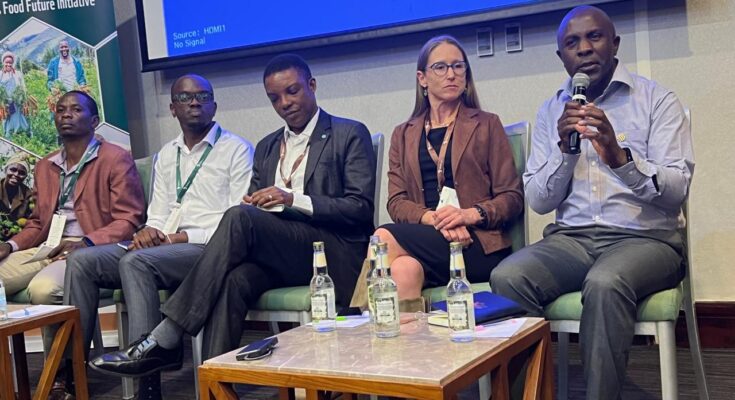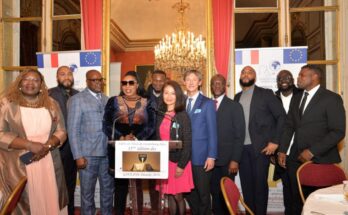Kigali, Rwanda, 04th September 2024 – African leaders, policymakers, and experts convened at the sidelines of the ongoing Africa Food Systems Summit for an event titled Harmonising Actions: How Africa’s Food Future Can Benefit People, Climate, and Biodiversity.
The event, hosted by WWF and The International Food Policy Research Institute (IFPRI), underscored the pressing need to harmonise Africa’s food systems with its climate resilience and biodiversity goals to address challenges such as food insecurity, environmental degradation, and climate change.
“Africa’s food systems must adapt to both current and future challenges driven by factors such as population growth, urbanization, and climate change,” said Nancy Rapando, WWF’s Africa Food Systems Lead. “We need to shift away from ‘business as usual’ approaches and adopt nature-positive solutions that enhance biodiversity and ecosystem resilience while ensuring food security.”
The discussions emphasized that Africa’s food systems, which rely heavily on natural resources, must transition toward nature-positive practices. These solutions focus on regenerative farming, sustainable land management, and restoring degraded ecosystems, all while ensuring that agriculture contributes positively to both people and the planet.
Key Data Points:
- Africa’s food systems account for up to 55% of land-use change emissions, driven primarily by cropland expansion. Emissions from mechanisation and fertilisers are also increasing.
- It’s important to note that smallholder farmers are the driving force behind cropland expansion in sub-Saharan Africa, a trend that poses a significant threat to biodiversity hotspots such as forests, wetlands, and savannas.
- CGIAR’s Nature-Positive initiative in Kenya has restored over 700 hectares of degraded land and provided capacity-building support for women and farmers.
Sedi Boukaka, CGIAR’s Regional Coordinator for Nature-Positive Solutions, underscored the transformative impact of sustainable practices: “Nature-positive food systems are not just about productivity but about restoring ecosystems. Through adopting sustainable practices, we’ve seen remarkable improvements in biodiversity and soil health in Kenya.”
Keynote speakers and panel discussions explored the promising potential of how African nations can lead the way in creating ecological food systems.
Speaker Quotes:
- Dr Eric Mbeche, Director of the Food Program at WRI Africa, commented: “Nature-positive practices are key to achieving food security without compromising biodiversity. These approaches allow us to balance productivity and conservation, ensuring that agriculture drives growth and protects nature.”
- Dr. Leigh Ann Winowiecki, Global Research Leader at Soil and Land Health, stressed the importance of integrated land-use planning: “We must think holistically about how agriculture, land use, and biodiversity can coexist. Through land-sharing practices, we can ensure that agricultural expansion does not come at the cost of Africa’s natural heritage.”
- Phillip OwitiDinga, PACJA’s Africa Climate Justice Policy Lead, highlighted the urgency of action: “Africa has the potential to lead the world in developing food systems that work for both people and the planet. We must invest in local solutions, empower farmers, and protect our natural resources.”
The event concluded with a call to create a working group that will harmonise food, climate, and biodiversity goals across the continent, emphasizing the importance of collective action. James Warner of IFPRI delivered closing remarks, stating: “By harmonising our actions, we can reshape Africa’s food systems to create a future that is sustainable, equitable, and resilient. The decisions we make today will shape the future of our continent.”
WWF remains committed to collaborating with stakeholders to ensure that the outcomes of today’s discussions translate into tangible actions, driving Africa towards a more sustainable and climate-resilient food future.
WWF is an independent conservation organisation with over 5 million supporters and a global network active in over 100 countries.
WWF’s mission is to stop the degradation of the Earth’s natural environment and to build a future in which humans live in harmony with nature by conserving the world’s biological diversity, ensuring that the use of renewable natural resources is sustainable, and promoting the reduction of pollution and wasteful consumption.
Visit africa.panda.org for the latest news and media resources, and follow us on Twitter @WWF_Africa.